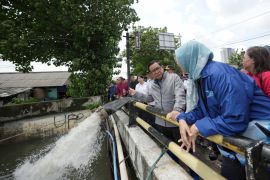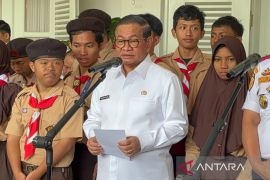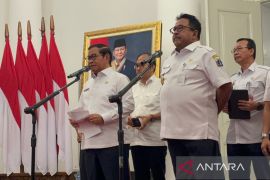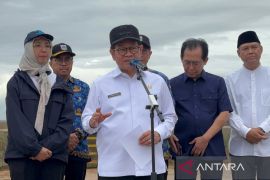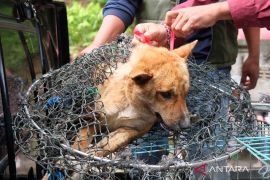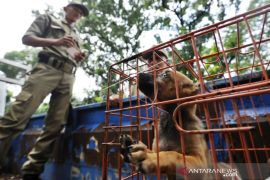We are bored of living like this. We just eat and sleep and are not allowed to find jobsJakarta (ANTARA) - Governor of Jakarta Anies Baswedan has put the onus of refugee care back on the United Nations High Commissioner for Refugees (UNHCR) and the central government.
The Jakarta administration will cease all forms of aid to refugees currently accommodated in Kalideres, West Jakarta, effective from August 31, 2019, the governor revealed here on Thursday.
"The responsibility to care for refugees lies in the hands of the UNHCR. We, the Jakarta administration, have assisted them this far solely on humanitarian grounds to fulfill their basic requirements, while the UNHCR has yet to do its part. We, however, must return it (responsibility) to the authorities. That is what we are doing now," Baswedan remarked.
The governor pointed out that decisions pertaining to the status of refugees and asylum seekers and whether to deport or send them to third countries lie in the hands of the UNHCR.
"The decision to allow the refugees to stay in Indonesia's territory is not made by the provincial government but by the central government," he emphasized.
Speaker of the Jakarta Legislative Council (DPRD) Prasetio Edi Marsudi had earlier remarked that the DPRD met with officials of the Jakarta administration, UNHCR, and International Organization for Migration (IOM) to deliberate on refugee issues and Jakarta's decision to halt assistance to them.
The refugee count in Jakarta reaches some 14 thousand, including some eight thousand, being cared for by the IOM.
Jakarta has, since the past 41 days until now, accommodated 1,500 refugees in Kali Deres, West Jakarta.
Most refugees are from conflict- or war-torn nations, including Afghanistan, Iraq, Palestine, Syria, and Somali.
In the meantime, refugees from different nations protested in front of the United Nations Commissioner for Refugees (UNHCR) in Medan, North Sumatra Province on Thursday, calling for departures to third countries, including Australia, New Zealand, the United States, or Canada.
Ibrahim Basir, a Palestinian refugee, was disgruntled by the fact that despite the refugees living in Medan for several years, their cause had been forgotten and that the UNHCR had yet to process matters concerning their departure.
"We are bored of living like this. We just eat and sleep and are not allowed to find jobs," he noted.
While living in Indonesia, they depend on financial assistance from the UN funds managed by NGOs, the IOM, and UNHCR.
Every refugee receives Rp500 thousand (US$35.1) to Rp1.5 million (US$105) on a monthly basis.
The refugees admitted to the money provided not sufficing to live in a big city, such as Medan, when they are not permitted to take up jobs to earn a living.
The refugees expressed ire over donations from other countries being cut by the IOM, and their children not being allowed formal schooling in Indonesia.
Most refugees have been stranded in Indonesia for up to six or seven years whilst awaiting the UNHCR to send them to third countries, such as Australia, New Zealand, or Canada.
Translator: Ricky Prayoga, Fardah
Editor: Rahmad Nasution
Copyright © ANTARA 2019

